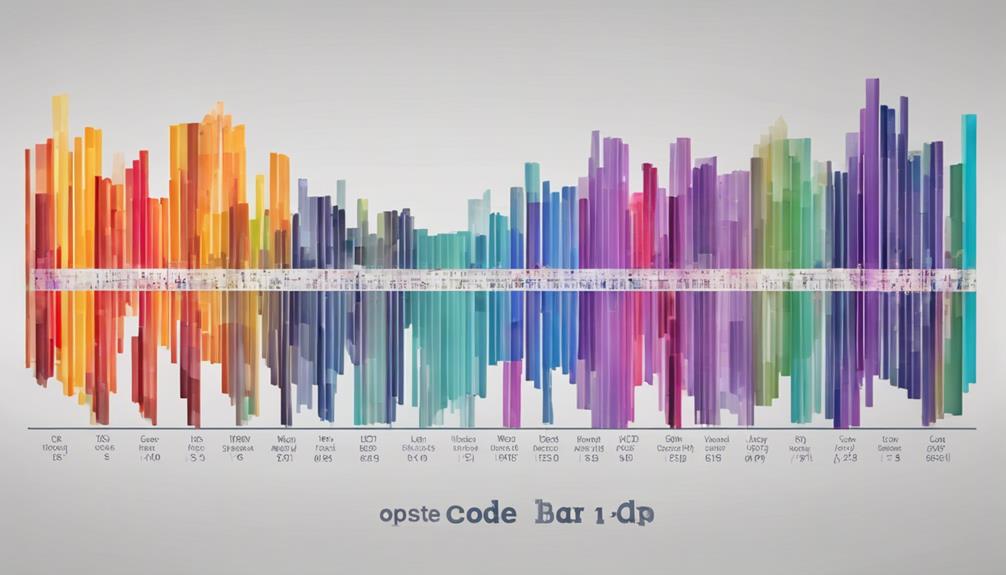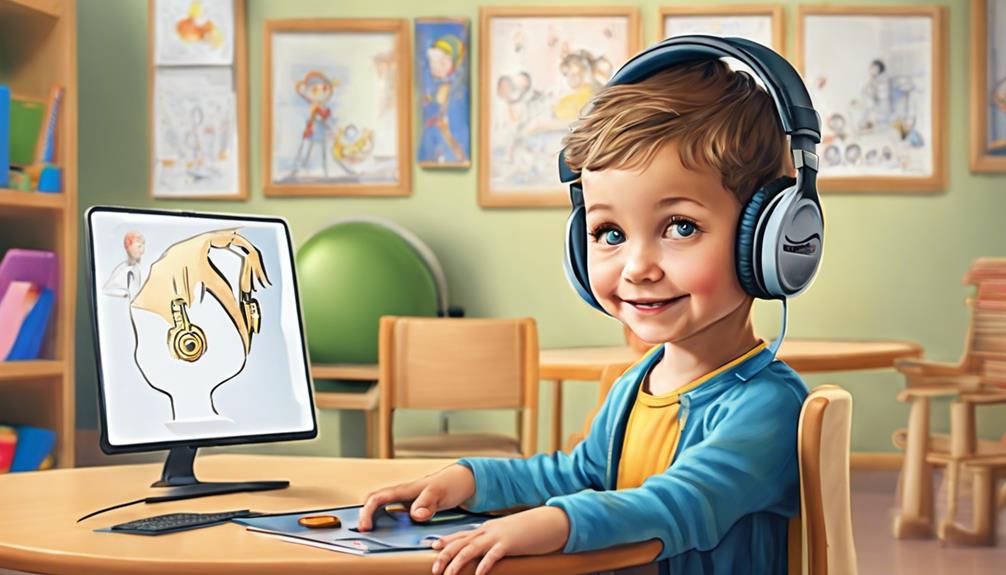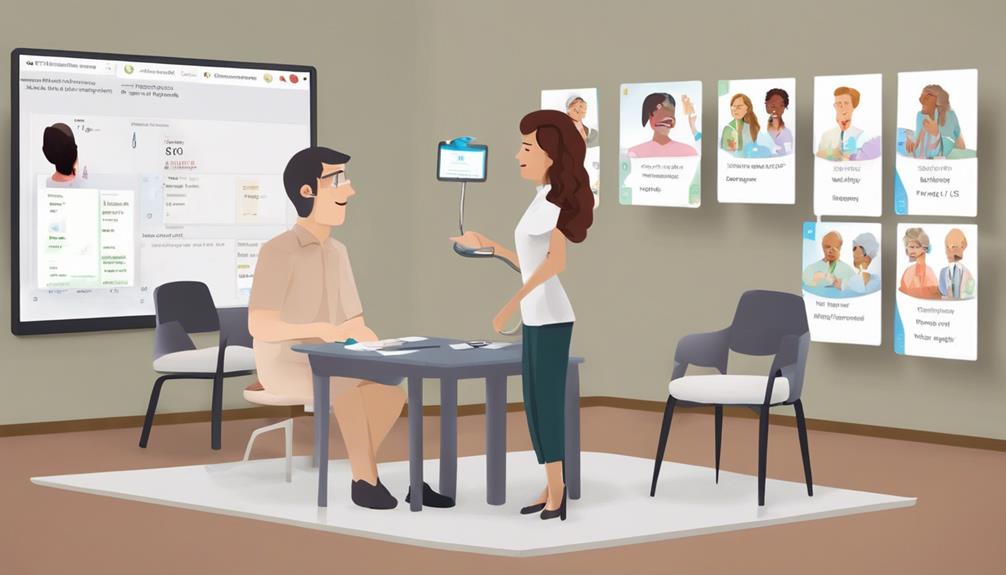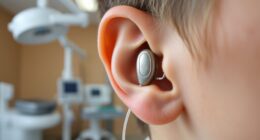As speech-language pathologists, we navigate through a maze of ICD codes, each one a key to unlocking a patient's unique communication challenges. Picture the precision required to select the right code from the vast array of possibilities, where each digit holds the power to streamline reimbursements and paint a clear picture of our services.
But what lies beyond the top 10 codes we commonly encounter? Explore the intricate web of ICD-10 classifications that shape our daily practice and help us advocate for those in need.
Key Takeaways
- Properly code speech disorders like phonological disorder (F80.0) for tailored therapy interventions.
- Use R48.2 for dysphonia treatment planning to address voice quality issues effectively.
- Document dysphagia accurately with R49.0 for managing swallowing disorders and ensuring safe swallowing.
- Billing for speech therapy should include coding for reimbursement and securing financial coverage for services.
F80.0: Phonological Disorder
Addressing Phonological Disorder with ICD code F80.0 is crucial for effective speech therapy interventions in children aged 4 to 6 years old. Phonological Disorder, characterized by difficulties in organizing and producing speech sounds within the language system, requires specialized attention in therapy sessions. Speech Language Pathologists (SLPs) rely on ICD Code F80.0 to target articulation challenges and phonological issues present in children's speech disorders.
Therapy interventions for Phonological Disorder associated with ICD Code F80.0 are tailored to meet the specific needs of each child. Through targeted exercises, children are guided to improve their speech sound production and language organization skills. By accurately using F80.0, SLPs ensure that treatment planning is precise and aligns with the child's diagnosis, leading to more effective therapy outcomes.
Moreover, billing for speech therapy services related to Phonological Disorder is streamlined with the use of ICD Code F80.0. Proper documentation of this code facilitates reimbursement processes and supports the continuity of care for children with phonological challenges. In essence, F80.0 plays a vital role in the comprehensive management of Phonological Disorder in young children.
F80.2: Receptive Language Disorder
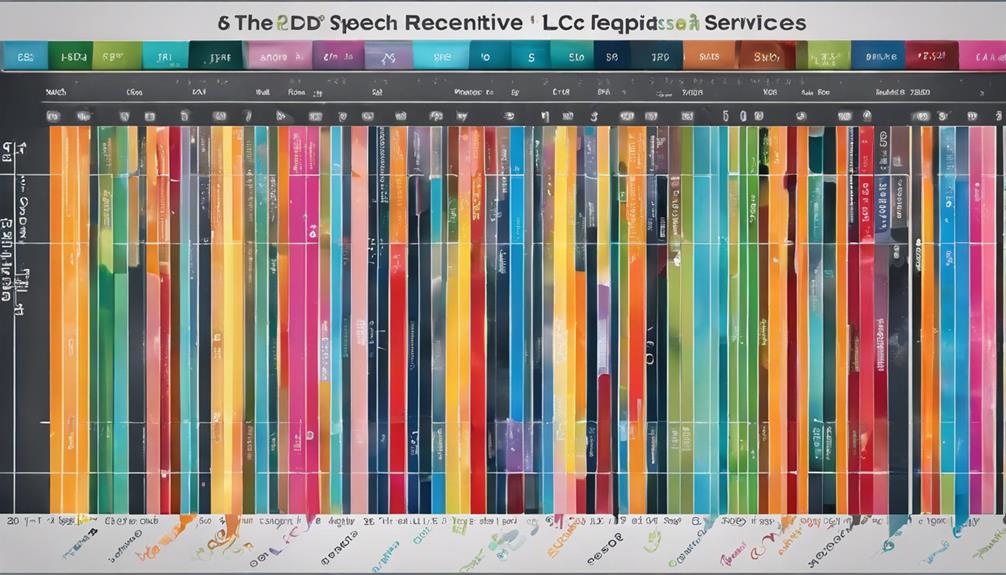
When addressing F80.2, Receptive Language Disorder, we focus on crucial points:
- Understanding the diagnosis criteria
- Exploring available treatment options
- Considering the prognosis and outcomes
These elements guide our approach to helping individuals with challenges in processing spoken language cues.
Diagnosis Criteria Overview
In speech therapy diagnosis criteria, the ICD-10 code F80.2 specifically identifies Receptive Language Disorder, signifying challenges in understanding spoken or written language. This code is crucial for pinpointing difficulties in processing language input, affecting the individual's ability to comprehend instructions accurately. Clinicians rely on F80.2 to diagnose and treat receptive language deficits effectively, enabling tailored therapy interventions to address these specific communication barriers.
Treatment Options Available
To effectively address Receptive Language Disorder identified by the ICD-10 code F80.2 in speech therapy, tailored interventions are utilized by speech-language pathologists to target specific deficits related to understanding spoken language.
Speech therapists work closely with individuals struggling with Receptive Language Disorder to improve their comprehension skills. These treatment options may include activities focusing on vocabulary development, following directions, and understanding complex sentences.
By implementing interventions tailored to the individual's needs, speech-language pathologists aim to enhance communication skills and promote better understanding of spoken language.
Proper documentation and accurate billing using the F80.2 ICD-10 code are crucial for tracking progress and ensuring proper reimbursement for services provided to individuals with Receptive Language Disorder.
Prognosis and Outcomes
Our focus lies on the anticipated progress and outcomes for individuals diagnosed with Receptive Language Disorder under the ICD-10 code F80.2 in speech therapy services. Patients with F80.2 may experience challenges in understanding spoken or written language, affecting communication and learning.
The prognosis for individuals with Receptive Language Disorder is generally positive with appropriate treatment interventions. Treatment goals aim to enhance receptive language skills to improve communication abilities and academic performance. By addressing difficulties in comprehending language, such as following directions and processing information, individuals can make significant strides in their communication abilities.
Accurate diagnosis and documentation using F80.2 are crucial for tailoring effective interventions and monitoring progress effectively for those with receptive language disorders.
R47.81: Fluency Disorder
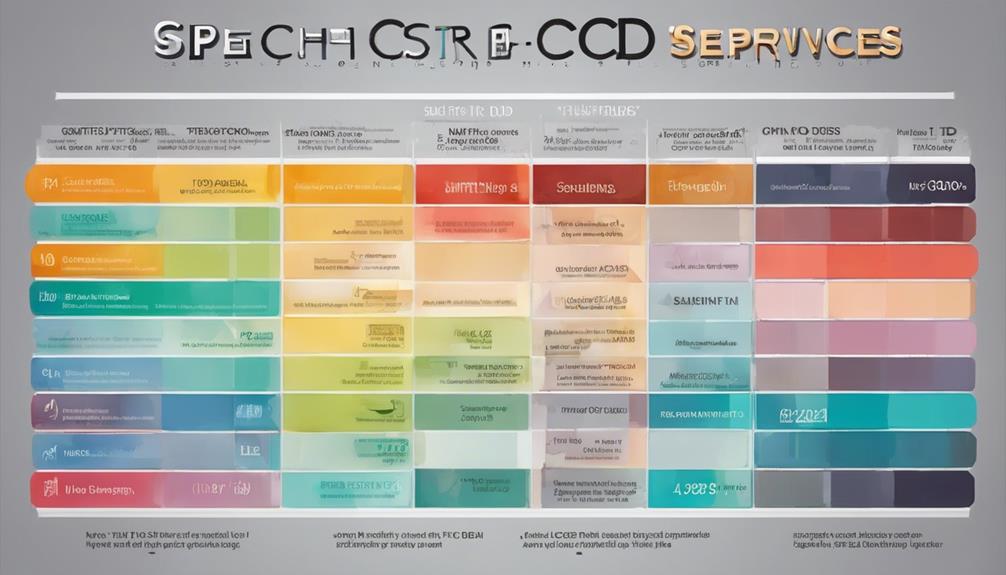
Experienced speech therapists rely on ICD-10 code R47.81 to accurately identify and address Fluency Disorder, encompassing conditions such as stuttering and cluttering. This specific code is crucial in documenting and billing for services related to fluency disorders, which can greatly impact an individual's communication skills. Speech therapy interventions targeting fluency disorders aim to enhance speech fluency and overall communication abilities. By correctly utilizing the ICD-10 code R47.81, speech therapists ensure proper diagnosis and effective treatment planning for individuals struggling with fluency issues.
| Category | Description | Examples |
|---|---|---|
| Symptoms | Repetitions, prolongations, blocks | Stuttering |
| Impact | Social, emotional, academic challenges | Cluttering |
| Treatment Methods | Speech exercises, relaxation techniques | Desensitization |
Understanding the nuances of fluency disorders and their manifestations is vital in tailoring speech therapy sessions to meet each individual's needs effectively. By recognizing the characteristics associated with Fluency Disorder, speech therapists can implement targeted interventions to support clients in improving their communication skills and overall quality of life.
R48.2: Dysphonia

Understanding the significance of ICD-10 code R47.81 in diagnosing fluency disorders, we now shift our focus to R48.2, which pertains to Dysphonia, a condition impacting voice quality. Dysphonia, identified by the ICD-10 code R48.2, can arise from various factors like vocal cord nodules, laryngitis, or muscle tension. Here's why accurate diagnosis and documentation of Dysphonia are crucial for speech therapy services:
- Treatment Planning: Utilizing the R48.2 code enables speech therapists to create effective treatment plans tailored to address the specific voice quality issues associated with Dysphonia.
- Targeted Intervention: With the proper identification of Dysphonia through the ICD-10 code, therapists can implement targeted intervention strategies to improve voice quality and communication skills.
- Reimbursement: Accurate documentation using the R48.2 code ensures that speech therapy services provided for Dysphonia are appropriately reimbursed, facilitating continued care for individuals experiencing voice disorders.
R49.0: Dysphagia

Detailing the clinical significance of ICD-10 code R49.0, Dysphagia, is essential for comprehensive speech therapy assessment and treatment planning. Dysphagia, a swallowing disorder, can significantly impact an individual's ability to swallow safely and efficiently. Speech therapists rely on the specific ICD-10 code R49.0 to accurately diagnose and bill for services related to dysphagia. Proper diagnosis and treatment are paramount in addressing dysphagia to ensure the patient's health and well-being. Understanding and utilizing the R49.0 code is crucial for managing dysphagia effectively within speech therapy practice.
| Category | Details | Importance |
|---|---|---|
| Diagnosis | Identifying dysphagia issues | Vital |
| Treatment | Implementing therapy strategies | Essential |
| Billing | Coding for reimbursement | Critical |
| Patient Care | Ensuring safe swallowing | Fundamental |
| Documentation | Recording progress and changes | Necessary |
G47.33: Obstructive Sleep Apnea
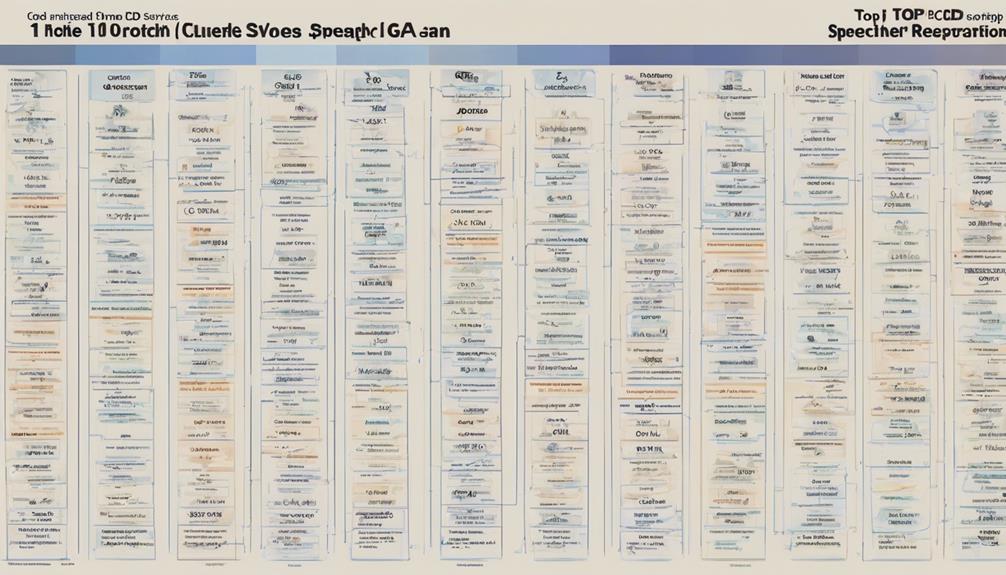
Proper identification and diagnosis of obstructive sleep apnea with the ICD-10 code G47.33 is crucial for effective treatment planning in speech therapy due to its potential impact on speech and language functions.
When addressing patients with obstructive sleep apnea in speech therapy, it's important to:
- Accurately Document: Using the ICD-10 code G47.33 helps speech therapists accurately document the presence of obstructive sleep apnea in their patients, enabling tailored treatment plans.
- Recognize Symptoms: Being aware of symptoms like disrupted sleep patterns and oxygen deprivation associated with obstructive sleep apnea aids in identifying the condition promptly during therapy sessions.
- Collaborate with Healthcare Providers: Collaborating with healthcare providers involved in the management of obstructive sleep apnea ensures a holistic approach to treatment, addressing both the sleep disorder and its potential impact on speech and language functions.
R47.01: Aphasia
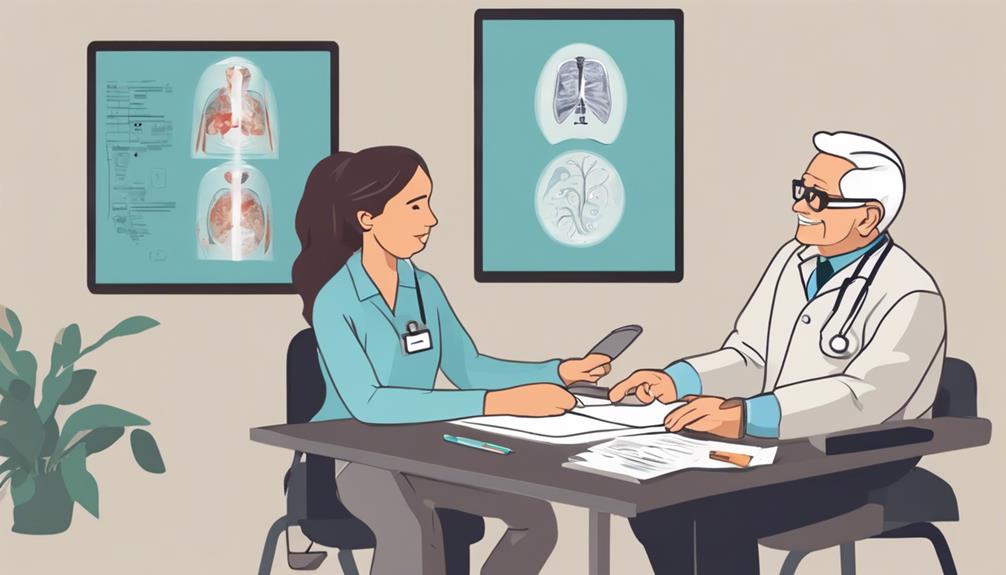
We'll focus on the types of Aphasia and the treatment approaches tailored to each subtype.
Understanding the nuances between expressive and receptive Aphasia is crucial for providing effective therapy.
Tailoring interventions based on proper assessment and diagnosis is key in addressing the communication challenges individuals with Aphasia face.
Types of Aphasia
Aphasia, a language disorder resulting from brain damage, encompasses various types such as expressive, receptive, global, and anomic aphasia. These types manifest differently in individuals, impacting their communication abilities in distinct ways:
- Expressive Aphasia: Difficulty expressing thoughts or ideas verbally.
- Receptive Aphasia: Challenges understanding spoken or written language.
- Global Aphasia: Severe communication difficulties affecting both expression and comprehension.
Each type presents unique challenges for individuals striving to communicate effectively. Understanding the nuances of these aphasia types is crucial for speech therapists to tailor interventions that address specific communication deficits. By identifying the type of aphasia present, therapists can develop targeted treatment plans to help individuals regain and enhance their language skills.
Treatment Approaches
When treating aphasia (ICD-10 code R47.01), speech therapists employ a variety of evidence-based approaches tailored to individual needs and goals. These approaches aim to improve language skills, enhance communication strategies, and help individuals regain functional communication abilities. Different types of aphasia, such as expressive, receptive, and global aphasia, each require specific treatment techniques to address the unique challenges they present in communication. By utilizing the ICD-10 code R47.01, speech therapists ensure accurate diagnosis, proper documentation, and insurance reimbursement for their services. Here is a table summarizing some common treatment approaches for aphasia:
| Treatment Approach | Description | Goal |
|---|---|---|
| Melodic Intonation Therapy | Singing words or phrases to improve speech production and rhythm. | Enhance expressive language abilities. |
| Constraint-Induced Language Therapy | Encouraging the use of verbal communication by limiting other forms of interaction. | Foster verbal communication skills. |
| Cognitive-Communication Therapy | Improving cognitive skills to enhance overall communication abilities. | Enhance cognitive and communication functions. |
| Anomia Training | Targeting word-finding difficulties through various exercises and strategies. | Improve word retrieval and naming skills. |
| Augmentative and Alternative Communication (AAC) | Using tools like communication boards or devices to facilitate communication. | Support communication when speech is impaired. |
R47.9: Speech and Language Deficits
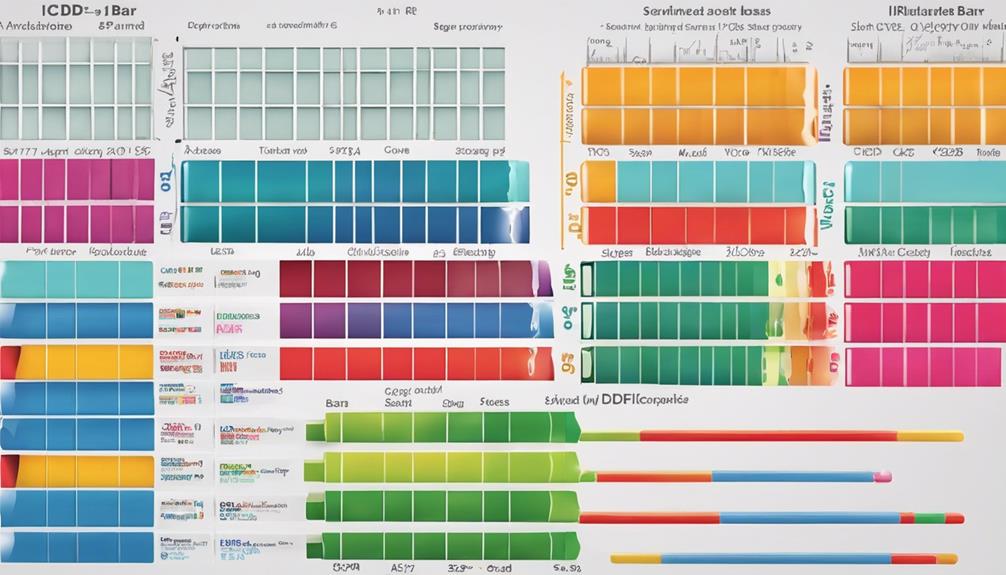
How can speech and language deficits be accurately identified and classified in patients using the ICD-10 code R47.9? Speech-language pathologists play a vital role in utilizing the ICD-10 code R47.9 to ensure precise diagnosis, effective treatment planning, and proper insurance reimbursement for speech therapy services. Here are three key points to consider:
- Accurate Diagnosis: The ICD-10 code R47.9 helps speech-language pathologists pinpoint specific speech and language deficits in patients, allowing for tailored treatment strategies to address individual needs efficiently.
- Treatment Planning: By correctly utilizing the R47.9 code, healthcare providers can develop comprehensive treatment plans that target the identified speech and language deficits, facilitating improved patient outcomes and progress tracking.
- Insurance Reimbursement: Proper documentation with the R47.9 code is crucial for securing reimbursement for speech therapy services, ensuring that patients receive the necessary care without financial barriers. This accurate coding also fosters clear communication among healthcare providers involved in the patient's care.
R47.01: Dysarthria

The ICD-10 code R47.01 represents Dysarthria, a motor speech disorder impacting speech articulation and clarity. Dysarthria can be caused by various neurological conditions such as stroke, brain injury, or degenerative diseases.
Speech therapists play a crucial role in the assessment and diagnosis of Dysarthria to effectively treat patients. Proper evaluation is essential before assigning the R47.01 code to ensure accurate documentation and billing for therapy services. Understanding the specific characteristics and severity of Dysarthria in each individual is paramount for the successful application of the ICD-10 code.
R48.0: Voice and Resonance Disorders

Exploring the nuances of Voice and Resonance Disorders with the ICD-10 code R48.0 provides crucial insights into diagnosing and treating conditions affecting vocal quality and resonance. When dealing with these disorders, Speech-Language Pathologists (SLPs) rely on this specific code for accurate documentation and treatment planning.
- Identification: R48.0 aids in pinpointing various voice disorders like dysphonia and resonance issues such as hypernasality, enabling targeted interventions.
- Treatment: SLPs utilize this code to address abnormalities in vocal pitch, loudness, or quality, enhancing communication abilities for individuals with these disorders.
- Reimbursement: Proper use of R48.0 is essential for insurance reimbursement for therapy services targeting voice and resonance challenges, facilitating access to necessary interventions.
Frequently Asked Questions
What Are ICD-10 Codes for Speech Therapy?
We use ICD-10 codes for speech therapy to classify various disorders like articulation, language, fluency, and voice issues. These codes help us accurately diagnose conditions, plan treatments, and ensure proper insurance reimbursement.
Common examples include F80.0 for Phonological Disorder and F80.2 for Receptive Language Disorder. Selecting the most fitting ICD-10 code is crucial for documenting a client's condition and billing correctly in speech therapy services.
What Is the ICD-10 Code for Talk Therapy?
We use ICD-10 codes to document specific mental health diagnoses addressed during therapy sessions. The code for talk therapy falls under mental health diagnosis codes, not speech therapy.
Common codes for talk therapy include F32.9 for Major Depressive Disorder, GAD-7 for Generalized Anxiety Disorder, and Z71.41 for Counseling for Family Member of Alcoholic.
Accurate ICD-10 coding for talk therapy ensures proper billing and tracking of mental health treatment interventions.
What Are Common CPT Codes for Speech Therapy?
We use CPT codes like 92507 for speech, language, and voice treatment, 92521 for speech fluency evaluation, and 92522 for speech sound production evaluation. There are also codes like 96105 for aphasia assessment and 96125 for cognitive testing. Understanding these codes is crucial for billing accuracy.
The new 2022 codes 98975 and 98976 cover caregiver/family training and group training in technology-assisted communication.
What Is the ICD-10 Code for Speech Disability?
We often encounter patients with speech difficulties, and the ICD-10 code for speech disability that we rely on is R47.81. This specific code pinpoints issues like dysphonia and voice disturbances related to vocal cord problems.
It's crucial for accurately diagnosing and treating individuals with voice disorders. By using this code effectively, we ensure proper billing and monitoring of treatment progress in our efforts to help those in need of speech therapy services.
Conclusion
In conclusion, mastering the top 10 ICD codes for speech therapy services is pivotal for SLPs.
From Phonological Disorder to Dysphagia, accurate documentation and billing are key.
Stay savvy with annual updates to ensure compliance and efficiency in speech therapy services.
Let's leverage these codes to provide exceptional care and secure reimbursement with finesse!

